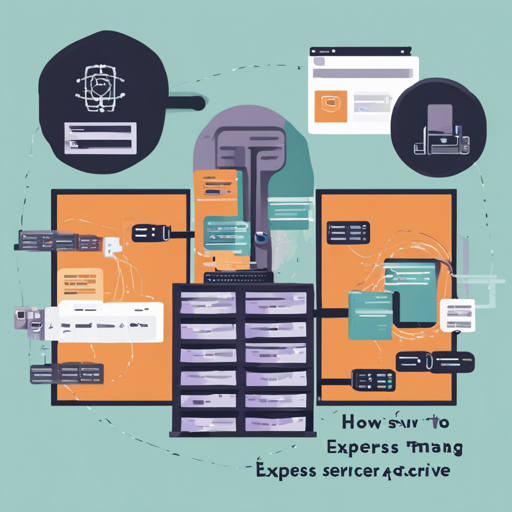Welcome to this guide on how to seamlessly integrate Express with Mock Service Worker (MSW) request handlers. MSW is an advanced tool for API mocking, allowing developers to simulate server responses without the need for a real HTTP server. In this article, we’ll walk you through the installation, setup, and troubleshooting of the MSW middleware for Express. Let’s dive right in!
When to Use This?
While Mock Service Worker is renowned for its capabilities in API mocking, certain scenarios benefit from this middleware extension:
- When you want to test your mock definitions locally with
curl. - When prototyping a Node.js backend implementation.
- When integrating API mocking into complex application architectures (e.g., dockerized applications).
Getting Started
First, let’s ensure you have everything set up correctly.
Installation
Start by installing the MSW HTTP middleware via npm:
npm install @mswjs/http-middlewareDeclare Request Handlers
Next, you’ll need to create handlers to define the mock API responses. Create a file named handlers.js in your src/mocks directory:
import http, graphql, HttpResponse from 'msw';
export const handlers = [
http.post('/user', () => {
return HttpResponse.json({ firstName: 'John' });
}),
graphql.query('GetUser', () => {
return HttpResponse.json({
data: {
user: {
firstName: 'John',
},
},
});
}),
];This portion is akin to crafting a recipe for a dish you’ll serve. The request handlers dictate how your server should respond to different requests, providing a seamless experience during development.
Integration
Now that we have handlers ready, let’s set up the middleware.
Option 1: Standalone Server
If you want to create an independent server, follow this:
import createServer from '@mswjs/http-middleware';
import handlers from './handlers';
const httpServer = createServer(...handlers);
httpServer.listen(9090);Option 2: Middleware
Alternatively, if you already have an existing Express application, you can easily incorporate the middleware:
import createMiddleware from '@mswjs/http-middleware';
import app from './app';
import handlers from './handlers';
app.use(createMiddleware(...handlers));
app.listen(9090);API Overview
Here’s a quick reference for your integration:
createServer(…handlers: RequestHandler[])
This method establishes a standalone Express server using the provided request handlers. The following example creates a GET endpoint:
import http, HttpResponse from 'msw';
import createServer from '@mswjs/http-middleware';
const httpServer = createServer(
http.get('/user', () => {
return HttpResponse.json({ firstName: 'John' });
}),
);
httpServer.listen(9090);Now, if you hit http://localhost:9090/user, you should see:
200 OK
Content-Type: application/json
{ "firstName": "John" }createMiddleware(…handlers: RequestHandler[])
This method produces an Express middleware function to process all incoming requests:
import http, HttpResponse from 'msw';
import createMiddleware from '@mswjs/http-middleware';
const app = express();
app.use(
createMiddleware(
http.get('/user', () => {
return HttpResponse.json({ firstName: 'John' });
}),
),
);
app.listen(9090);Troubleshooting
If you encounter issues during setup, consider the following:
- Double-check that your middleware and handlers are imported correctly.
- Ensure your server is actively listening on the specified port.
- If endpoints don’t return the expected values, review your request handlers for proper configuration.
For more insights, updates, or to collaborate on AI development projects, stay connected with fxis.ai.
Conclusion
By following this guide, you can effectively leverage the power of Mock Service Worker alongside Express to enhance your development workflow. Not only does it allow for efficient API mocking, but it also streamlines testing and prototyping efforts.
At fxis.ai, we believe that such advancements are crucial for the future of AI, as they enable more comprehensive and effective solutions. Our team is continually exploring new methodologies to push the envelope in artificial intelligence, ensuring that our clients benefit from the latest technological innovations.

